Projects Funded in 2015-2016

Fleet Services EV Charging Stations
Allocated Funds: $10,000
Description: UCSC Fleet Services has been awarded a Carbon Fund grant to help reach the UC Carbon Neutrality Initiative for transportation. The proposed Sustainable Transportation Policy calls for 50% of light-duty vehicle to be zero emissions by 2025. However, the Fleet Services Central Garage does have adequate infrastructure to support the addition of more electric vehicles on campus. Their Carbon Fund grant will be used to install 3 2-level chargers that will support the department's growing EV fleet now and in the future. It is estimated that the project will save 1800 gallons of gasoline a year.

Ground Services Electric Leaf Blowers
Allocated Funds: $8,400
Description: Ground Services has been awarded a Carbon Fund grant to use 100% carbon neutral blower equipment. Last year, ground services recieved a grant to begin replaceing their two-stroke gas/oil mix leaf blowers with electric blowers. This year's grant will be used to replace their remaining two-stroke blowers with battery powered blowers. Two-stroke blowers are efficient tools for a number of reasons, but they produce a significant amount of greenhouse gas emissions and other pollutants. In fact, the hydrocarbon emissions from a half-hour of work with a two-stroke leaf blower is equivalent to driving a Ford Raptor from Northern Texas to Alaska. Replacing all of the two-stroke blowers with electric ones will save 2.4 tons of carbon emissions a year.
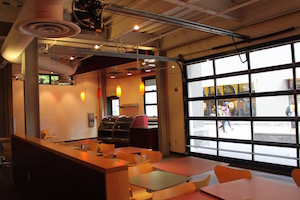
Graduate Student Common Kitchen Retrofit
Allocated Funds: $7,500
Description: The Graduate Student Common (GSC) has been awarded a Carbon Fund grant to continue to become more energy efficient, as well as align with the UC's Carbon Neutrality goals. A major component of the GSC building is the restuarant space formerly occupied by Joe's Pizza. Their Carbon Fund grant will be used to retrofit this restuarant space into a green building for the future tenant. The GSC plans to install energy efficient appliances and lighting in the building, which will have significant energy and GHG savings. It is estimated that the green retrofit of the entire restaurant will save 9.6 tons of carbon emissions a year.
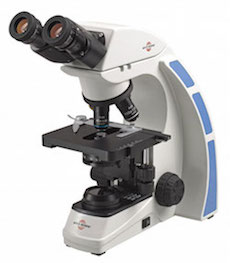
Microscopy Facility LED Light Source Upgrade II
Allocated Funds: $6,500
Description: The UCSC Microscopy Facility has been awarded a Carbon Fund grant to replace their existing microscope light sources with LEDs. Though the two different light sources consume energy at similar rates when on at full power, the LEDs use less energy. They reduce consumption of HVAC resources and use less energy directly because they don’t have to warm up/cool down before/after use. The LED light sources are also mercury free and the environment will benefit from moving away from old toxic mercury-based bulb technology. Another feature of the LED light sources are that they can be turned on/off at will. The significant, but indirect benefit of this, is that people will be able to utilize their time and materials more efficiently.
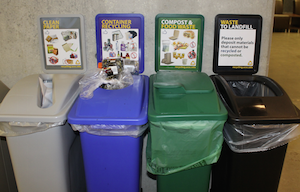
Zero Waste at the Resource Centers
Allocated Funds: $2,000
Description: The Ethnic Resource Centers, Women's Center, and Cantu Queer Center have been awarded a Carbon Fund grant to make the ERC office and Resource Center events zero waste. Their grant will be used to implement 2 zero waste stations in the ERC's office, as well as have zero waste stations at their events. Ultimately, this project will reduce the campus' GHG emissions and contribute to the UCSC Zero Waste by 2020 goal. It is estimated that the project will divert 50,911.16 lbs of waste from the landfill, as well as save 3.72 tons CO2e. This project will also spread sustainability to students who may not usually attend sustainability themed events, which will help contribute to larger behavioral changes throughout UCSC.
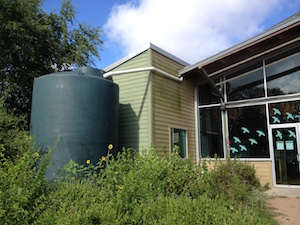
Calabasas Elementary School Rainwater Catchment Project
Allocated Funds: $12,000
Description: A group of College Nine and Ten students have been working with Calabasaas Elementary to cultivate a 1.5 acre community farm on the school's campus. Calabasas Elementary is nestled in the heart of Watsonville and sits in close proximity to strawberry fields, a migrant farmeworker camp, and landfill site. The majority of the school's families are farmworker familes and experience food insecurity. The creation of the community farm will provide these families with a space to grow their own food, as well as help mitigate climate change in their community by sequestering carbon. Their Carbon Fund grant will be used to help finish the project by installing a rainwater catchment system.

Porter Dorms Stormwater to Toilet
Allocated Funds: $17,000
Description: A team of UCSC students and faculty have been awarded a Carbon Fund grant to use rainwater capture for toilet flushing in the Porter dorms. In 2011, the Porter dorms were renvoated to include dual piping for non-potable water toilet flushing. This project will reduce the dorms potable water usage by nearly 25% annually, as well as contribute to our campus' green infrastructure. It is also estimated that the project will save 15.7 tons of CO2 annually. This project is not only a turning point for UCSC, but the entire UC system as well.
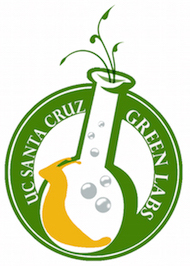
Green Labs Equipment Retrofit Fund
Allocated Funds: $17,000
Description: The UCSC Sustainability Office student led program, Green Labs, was awarded a $17,000 grant this year to start an equipment retrofit fund. Labs account for over half of the energy use on campus, which is partly due to their outdated and inefficient equipment. The cost of this equipment is often a barrier that prevents labs from upgrading to more energy efficient equipment and appliances. This fund will provide Green certified labs with a funding source for energy-efficient equipment lab equipment such as freezers, centrifuges, and incubators. It is estimated that this project will save 4.76 tons of carbon emission a year.

Sustainability Field Deployment
Allocated Funds: $5,000
Description: A group of UCSC faculty, staff, and students have been awarded a Carbon Fund grant to further advance the Sustainability Studies minor at UCSC. The Sustainability Studies minor is at the end of its 2 year pilot phase and insufficient funding is a limiting factor in the continuation of the curricula. This grant will provide funding for the minor to continue for the next two years. Moreover, the grant will continue to support some of the minor's current projects. Their grant will help continue two projects that include the deployment of smart irrigation monitoring and control systems, as well as climate and solar radiation monitoring networks in both urban food and commercial environments.

Water Lab
Allocated Funds: $7,000
Description: A team of UCSC students and faculty have been awarded a Carbon Fund grant for their Water Lab. This project aims to develop a prototype for a decentralized wastewater treatment/reuse system, combined with a decentralized renewable-energy microgrid. If successful, the project could spur the development of potable reuse systems that reduce the GHG footprint of wastewater treatment and extend wastewater treatment to many unserved parts of the world. It is estimated that the full system will save 13 tons of carbon emissions a year.
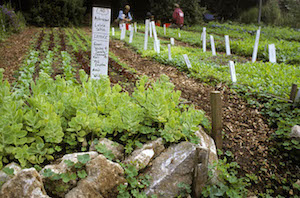
The Colleges Nine and Ten Garden Project
Allocated Funds: $3,500
Description: A team of UCSC students and staff members have recieved a Carbon Fund grant to construct a garden for Colleges 9 and 10. The purpose of the garden project is to create an awareness of sustainable agriculture and food systems in the College 9/10 community. The team plans to incorporate the themes of the two colleges; social justice, community, and international perspectives in order to create a gardening space focused on food justice and cultural diversity. The garden will also help reduce our university's carbon footprint through carbon sequestration processes such as, composting, cover cropping, and tree planting.

Ecotopia House
Allocated Funds: $2,500
Description: The UCSC-Cabrillo College Ecotopia House is a "tiny house" designed to minimize residential ecological footprint through both construction and operation. The project team has been awarded a Carbon Fund grant to help construct a low-cost, zero-net energy home that is easily reproducible, uses recycled materials where possible, and provides housing with as little environmental impact as possible. Ulimately, this project aims to research new sustainable technologies and techniques for reducing residential greenhouse emissions.

Electric-Assist Bicycle for EH&S Staff
Allocated Funds: $3,850
Description: The UCSC EH&S department has recieved a Carbon Fund grant to purchase an electric-assist bicycle for on-campus travel. The department has a decentralized office space and staff members frequently have to make trips across campus. The use of an electric-assist bicyle will allow the staff to conduct ongoing, frequent trips throughout campus in a sustainable manner. It will also serve as a pilot project for the potential of other departments adopting the use of an electric-assist bike for on-campus travel. It is estimated that the use of the bicycle will save the department 170 gallons of gasoline a year, which corresponds to an annual CO2 reduction of 1.6 tons.

FSAE Electric Vehicle Competition
Allocated Funds: $4,000
Description: Formula Slug, an electric FSAE group of mechanical and electric engineers at UCSC, is developing a formula style racing vehicle to compete in the the annual FSAE competition. The purpose of this project is to develop an electric vehicle for competition in order to reduce carbon emissions, as well as reveal the potential of EVs to universities nationwide. The team also hopes that this project will serve as a model for the advancement of electric vehicles in the motor industry and spread awarenss about EVs to the public.

Gaia Magazine Issue VIII
Allocated Funds: $1,500
Description: Gaia is a student-run magazine at UCSC that provides coverage of sustainability-related issues and initiatives on, or linked to, the UCSC community. Gaia also strives to promote sustainability by printing locally on recycled paper, using soy based ink, and publishing online. The organization has been awarded a Carbon Fund grant to publish Issue VIII, which will focus on inspiring readers to reduce their impact on the environment through their daily actions. The group anticipates that the issue will motivate readers to reduce their energy usage, and thus carbon footprint.

Sustainable Exhibition Lighting for the 21st Century
Allocated Funds: $3,000Description: UCSC art galleries have been awarded a Carbon Fund grant to replace the current halogen lights to LED lights. The lighting systems in the art galleries date back to the 1970s and a retrofit will provide a better working system for the galleries needs. Replacing the halogen lights with energy-efficient LED lights will decrease the university's energy consumption and electricity costs as well. It is estimated that the lighting retrofit will save the university 5,250 kWh and $3,000 annually.

Global Student Embassy
Allocated Funds: $1,800
Description: Global Student Embassy (GSE) is a program that aims to educate youth about local and global environmental issues, primarily centered around agriculture, as well as cultivate socially constructive, international relationships among the world's youth. GSE combines reciprocal international service-learning exchanges with year-round local programming that focuses on youth empowerment, leadership, and stewardship. In the past few years, GSE has been able to launch their program and construct organic gardening spaces at Santa Cruz High, Harbor High, and Soquel High through Carbon Fund grants. GSE has been awarded a Carbon Fund grant this year to further develop their gardens in order to educate students about how organic farming can reduce the world's carbon footprint.

Green Office Certification Program
Allocated Funds: $1,000
Description: The Green Office Certification Program is a student-led initiative that works to help offices on the UCSC campus implement sustainable practices in their daily operations. The Green Office team performs energy audits and waste assessments in campus offices in order to identify ways to lower their energy and waste consumption, as well as improve their overall environmental performance. The team has been awarded a Carbon Fund grant to provide energy saving tools, such as smart strips, to thirty participating offices on campus. It is estimated that the implementation of thirty smart strips will save the UCSC campus approximately 4,500 kWh a year.
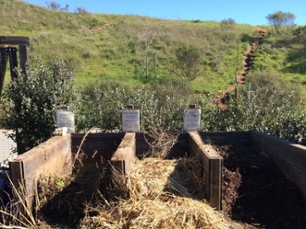
Increasing Compost Education
Allocated Funds: $3,000
Description: The Program in Community and Agroecology (PICA) is an educational community focused on sustainable agriculture and community building. PICA offers weekly and quarterly student-led workshops to teach students organic gardening and sustainable living skills. PICA's carbon fund grant will help support and expand their current compost education program. The project's goal is to increase education on campus about composting, as well as divert food waste from landfills. The funds will give PICA's compost coordinator the opportunity to offer compost education workshops and composting supplies, such as worm bins, to students. It is predicted that the program will reach over 170 students and divert 9,420 pounds of food waste from landfills.

The Role of Atomic Defects in Solar Cell Perovskites
Allocated Funds: $1,100
Description: A group of UCSC chemistry students have been awarded a Carbon Fund grant to research the role of atomic level defects in perovskite solar cells. Perovskite cells are an emerging technology that could be a viable alternative to the use photo-voltaic cells in solar panels. The efficiency of perovskite solar cells has been recorded as high as 21 percent. Compared to an efficiency of 11 to 15 percent for a current market photo-voltaic cell. Solar cell perovskites are highly efficient and relatively easy to manufacture, however, they are very reactive to their environment. The goal of the team's research is to address the issues of stability of perovskites by understanding the role of atomic level defects in the solar cell in order to further the advancement of perovskite solar cells.

UCPD Patrol Bicycle Program
Allocated Funds: $4,950
Description: The UCSC Police Department has been awarded a Carbon Fund grant for the purchase of three bicycles to use for police patrol. The use of bicycles for police patrol will reduce the department's vehicle usage and carbon footprint, as well as improve campus security. In many cases, police bicycle patrol is preferable over vehicle patrol. For instance, bike patrol provides greater accessability to areas that are not reachable by vehicle and creates a higher visibility and approachability for the officers and student ambassadors. UCPD estimates that the utilization of bicycle patrol will save the department approximately twelve gallons of gasoline a day, which corresponds to an annual CO2 savings of 40 tons.

Clean Oceans Project
Allocated Funds: $1,000
Description: Clean Oceans International (COI) is a local non-profit organization focused on decreasing the amount of plastic pollution in the ocean. COI has developed plastic to fuel technology that has the potential to drastically reduce the amount of plastic in the ocean, as well as provide communities with an alternative waste management system. A team of UCSC students have partnered with COI to research the productivity, efficiency, safety, and quality of the emerging technology. The students have been awarded a Carbon Fund grant to fund their research and further the advancement of plastic to fuel technology.

Arboretum Off-the-Grid Greenhouse Power System
Allocated Funds: $2,500
Description: A team of UCSC students have been awarded a Carbon Fund grant to install a new power system in the two greenhouses in the Arboretum. The Arboretum greenhouses have recently been approved as a space for working on sustainablity projects, as long as the site remains off the grid and utilizes low voltage DC power. However, the current power system in the Arboretum is less than 1 kW, so the number of projects that can be done in the greenhouses are limited. The team plans to install energy efficient DC pumps and LED lighting in one of the greenhouses and a solar system on the other. This new power system will allow students to have a space to work on projects related to aquaponics, bioponics, urban agriculture, biogas, and biofuel.
